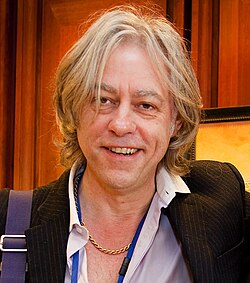Bob Geldof: A Look at His Life and Impact

Introduction
Bob Geldof, an iconic figure in music and humanitarian efforts, continues to leave a lasting impact on both the entertainment industry and global social issues. Best known as the lead singer of the Boomtown Rats, Geldof catapulted to fame in the late 1970s. His subsequent activism, particularly in response to the Ethiopian famine in the 1980s, has solidified his status as a figure of significant historical relevance.
Musical Career
Geldof’s music career took off with the Boomtown Rats, whose hit singles like ‘I Don’t Like Mondays’ resonated with audiences and showcased his lyrical prowess. The band’s induction into the UK punk and new wave scene marked a crucial shift in British pop culture. In addition to his band’s success, Geldof’s 1986 single ‘Do They Know It’s Christmas?’ raised millions for famine relief and united numerous artists in a shared cause.
Humanitarian Efforts
Beyond music, Geldof’s dedication to social causes is arguably his most significant contribution. In 1985, he co-founded Live Aid, a dual concert held in London and Philadelphia that aimed to raise funds for African famine relief. This groundbreaking event raised over £150 million, demonstrating the power of music as a force for change. He was instrumental in orchestrating similar benefits such as Live 8 in 2005, which sought to pressure G8 leaders to address global poverty.
Recent Developments
As of late 2023, Geldof remains active in both the music industry and humanitarian circles. Recently, he has been involved in discussions about the ongoing humanitarian crises exacerbated by global conflicts and climate change. On social media platforms and through public appearances, Geldof has been vocal about the urgent need for continued global support and cooperation in tackling these pressing issues.
Conclusion
Bob Geldof’s legacy as a musician and humanitarian is entwined with a call to action for countless individuals worldwide. His ability to blend music with advocacy has inspired generations to engage in social justice. Looking ahead, the need for such passion and dedication will only increase as global challenges amplify. For readers, Geldof’s life serves as a reminder of the positive impact one individual can have in addressing critical issues through art and activism.









